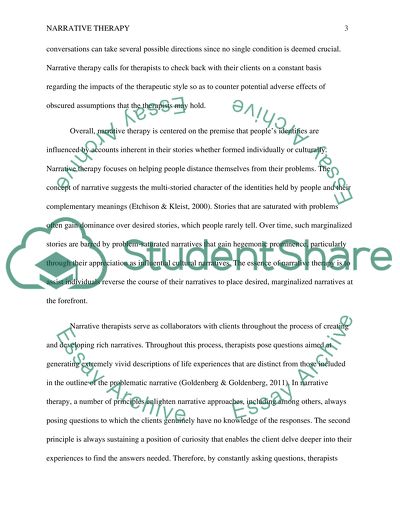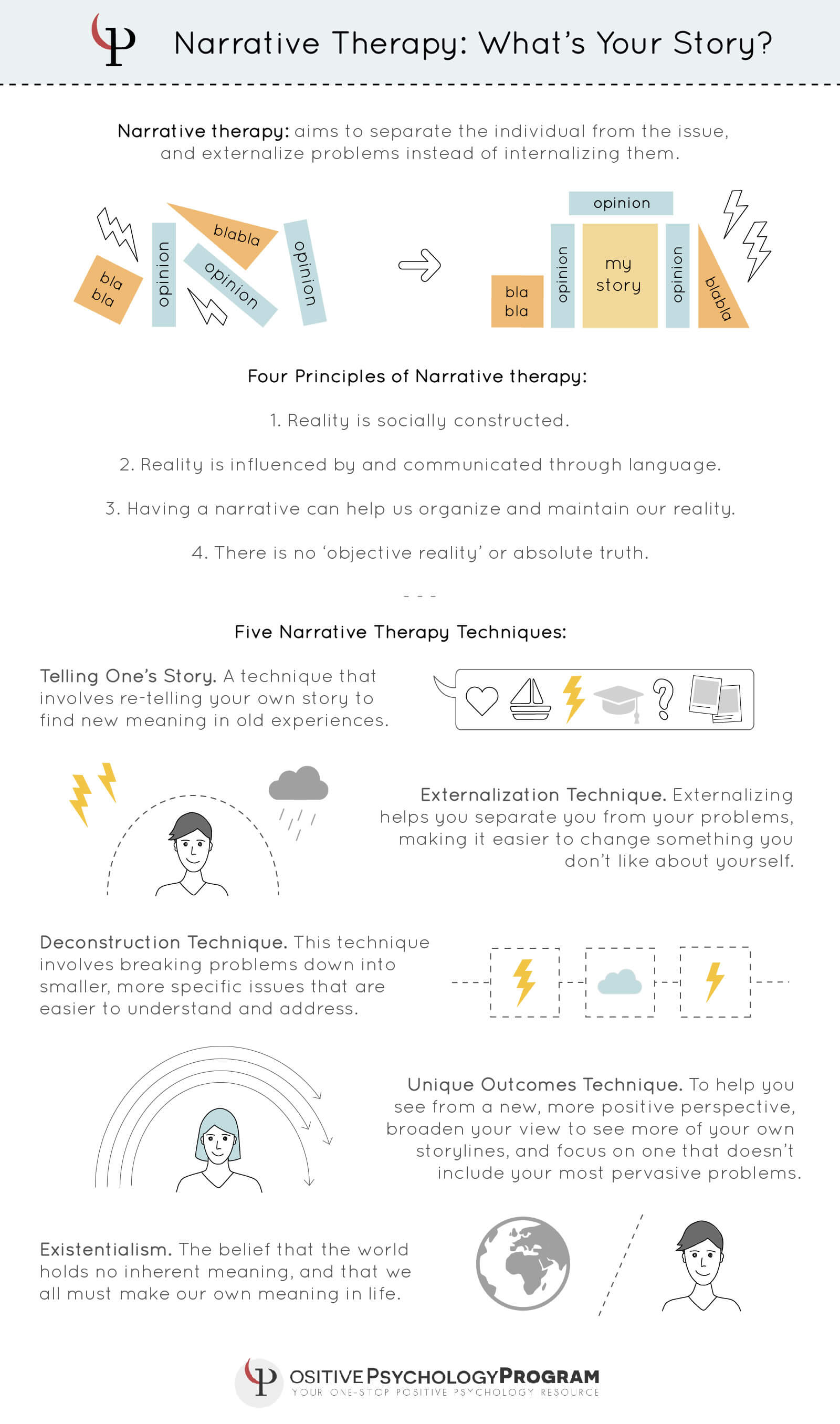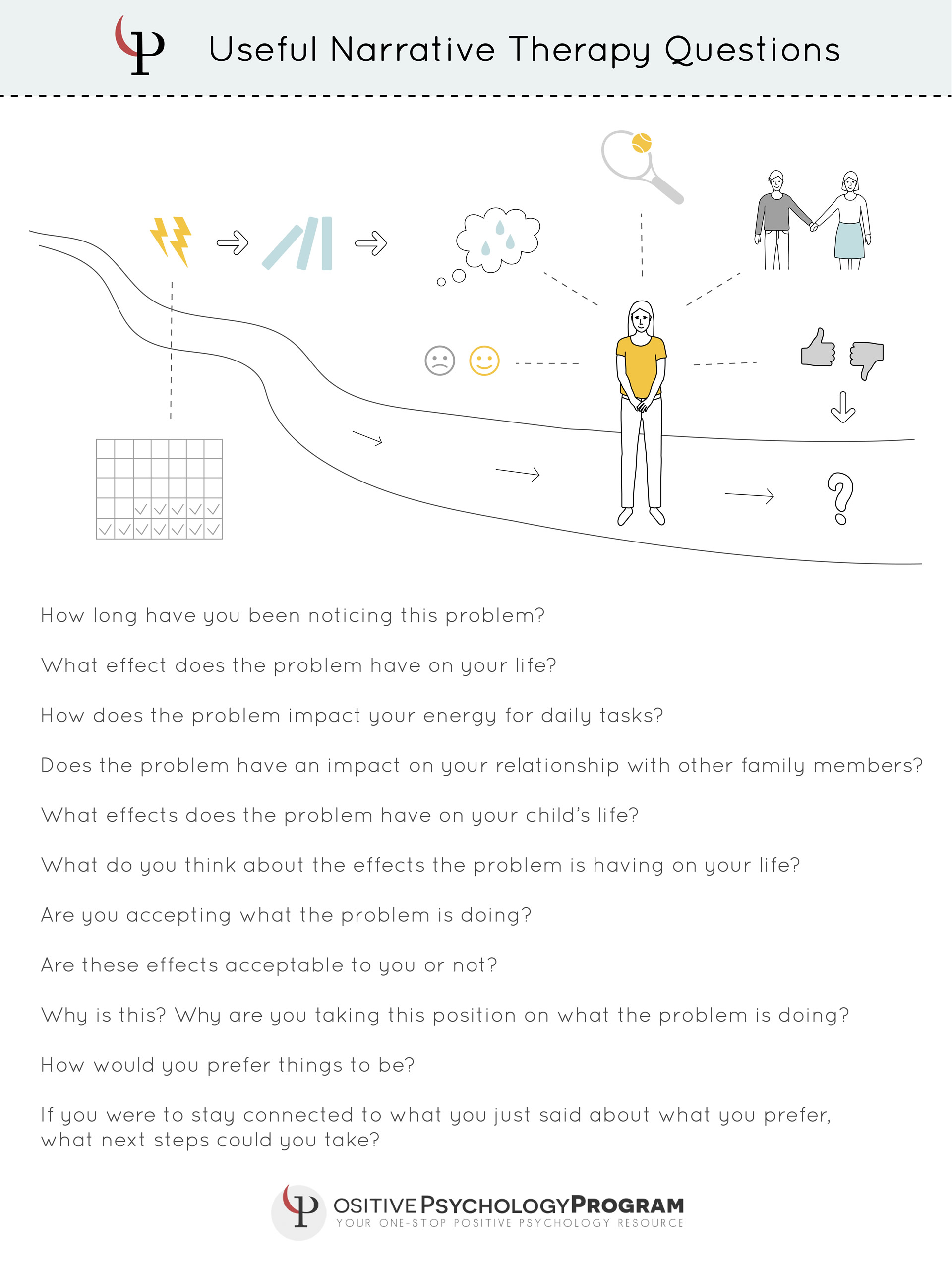Are you seeking for 'narrative therapy essay'? You can find all the material on this web page.
Table of contents
- Narrative therapy essay in 2021
- Narrative therapy treatment plan example
- Narrative practice
- Narrative therapy case study example
- Narrative therapy example
- Narrative therapy interview questions
- Narrative therapy techniques
- Narrative therapy exercises
Narrative therapy essay in 2021
 This picture illustrates narrative therapy essay.
This picture illustrates narrative therapy essay.
Narrative therapy treatment plan example
 This picture shows Narrative therapy treatment plan example.
This picture shows Narrative therapy treatment plan example.
Narrative practice
 This picture representes Narrative practice.
This picture representes Narrative practice.
Narrative therapy case study example
 This picture representes Narrative therapy case study example.
This picture representes Narrative therapy case study example.
Narrative therapy example
 This image illustrates Narrative therapy example.
This image illustrates Narrative therapy example.
Narrative therapy interview questions
 This picture representes Narrative therapy interview questions.
This picture representes Narrative therapy interview questions.
Narrative therapy techniques
 This picture shows Narrative therapy techniques.
This picture shows Narrative therapy techniques.
Narrative therapy exercises
 This picture representes Narrative therapy exercises.
This picture representes Narrative therapy exercises.
How is narrative theory used in a case?
The purpose of applying the use of narrative theory to a case is to examine how it is utilized in practice and how it can be used to empower a specific population. Women who have experienced domestic violence are not only forced to face the realities of the events in their own life, but face assumptions made by society.
Who are the major proponents of narrative theory?
History of the Theory Narrative theory is a relatively new theory that began as an alternative form of family therapy (Hart, 1995). The major proponents of the theory were Michael White and David Epston. They began developing it in the 1980’s in Australia and New Zealand.
How is narrative therapy used in family therapy?
A key component of family therapy and brought forward by scholars such as Michael White, narrative therapy is a tool used to make use of an individual’s skills and competencies so as to change the person’s life, positively. In this manner, the individual is made to separate oneself from the problems he is encountering.
Why do narrative therapists believe in the relativity?
The relativity emerges from the belief that human problems and struggles are a product of how the surrounding environment impacts the people. These problems come about as a result of the decision by people to go against the generally accepted dominant as well as cultural discourses. Such a proposition is what is believed by narrative therapists.
Last Update: Oct 2021